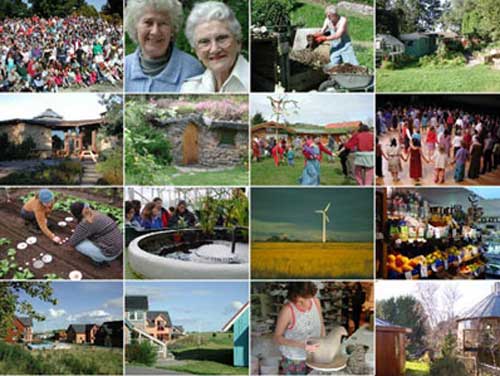FINDHORN

Ecovillage
Key Innovation
An ecologically respectful built environment, providing a good example to local rural communities
Solution description
Educational programmes which through a practical application of spiritual and holistic values inspire a positive change in the world. The main focus being an awareness of the inner self and the perusal of a spiritual path. No one religion is dominant and an acceptance of all beliefs is at the core of the community. Eco Village: Began in 1982 and provides a sustainable way of life for residents, demonstrates co-creation with nature, and supplies a place to educate in living sustainability. Businesses: UN work: The Findhorn Foundation engages with the work of the United Nations as an NGO associated with the UN Department of Public Information specifically education, sustainability and values.
Timeframe
longterm
Development phase
Diffusion:
The next major development phase for the Findhorn Community will be the expansion of the eco village with hundreds of new, non-toxic eco homes.
Maturity:
The community has grown and expanded since 1962 and is now deeply rooted and stable. The Foundation has received great recognition from the local enterprise board who acknowledge for the first time that the Foundation generates £5 million worth of household income in the area and supports over 400 jobs. They also acknowledge the social, educational, cultural and environmental benefit to the area.
Revenue/costs model
Taken from annual report 2004: 75% of the Foundation`s revenue comes from Educational income, £1,091,484. The Net assets in 2004 were £2,242,000 and after costs the surplus was £82,000. The main expenditure was staffing at £355,000 followed by Rent, fuel and maintenance costs at £201,000. The Foundation is a not for profit charitable organisation.
Social evaluation
Environmental evaluation
Economical evaluation
Authors
Ian Grout / The Glasgow School of Arts / United Kingdom